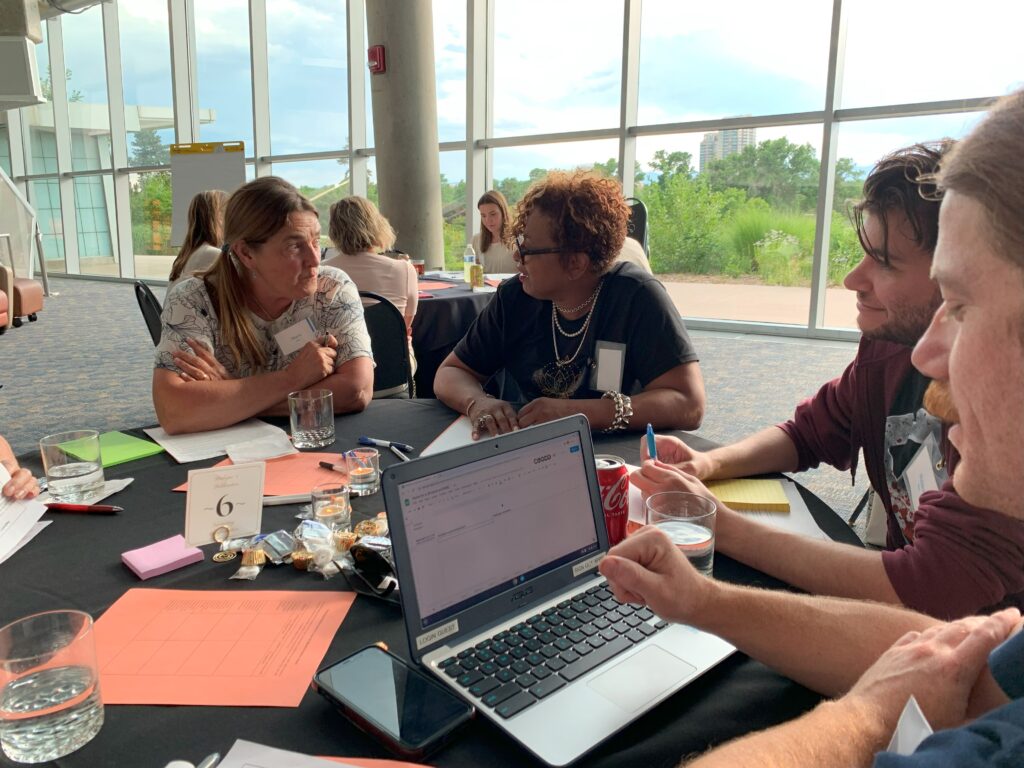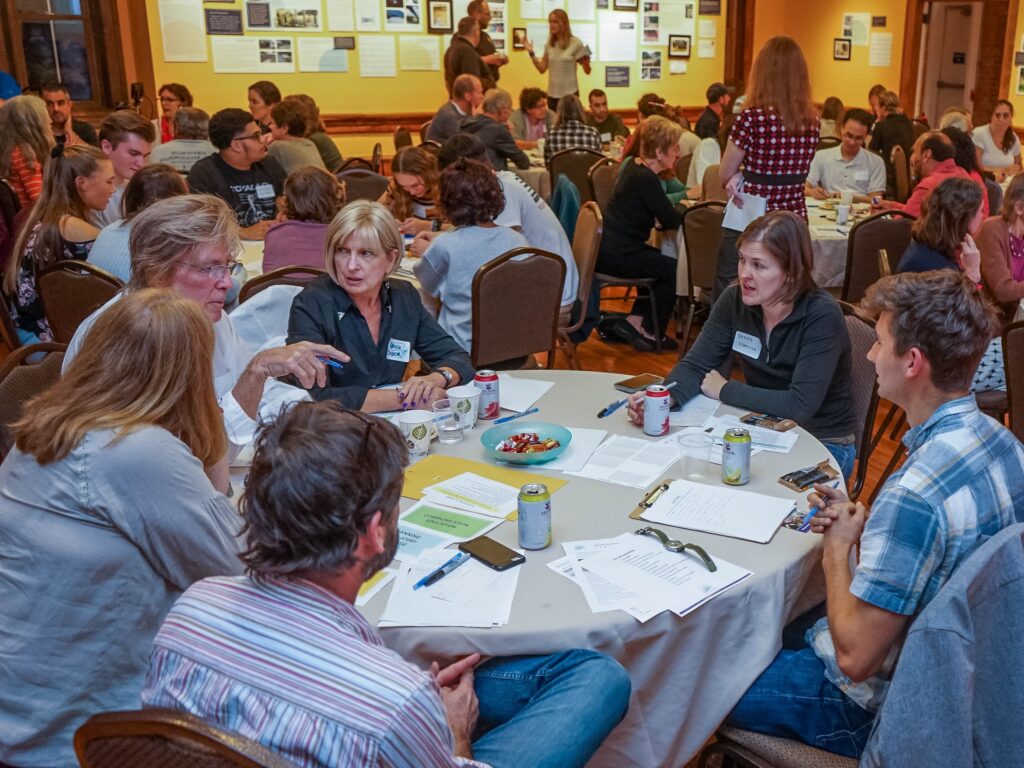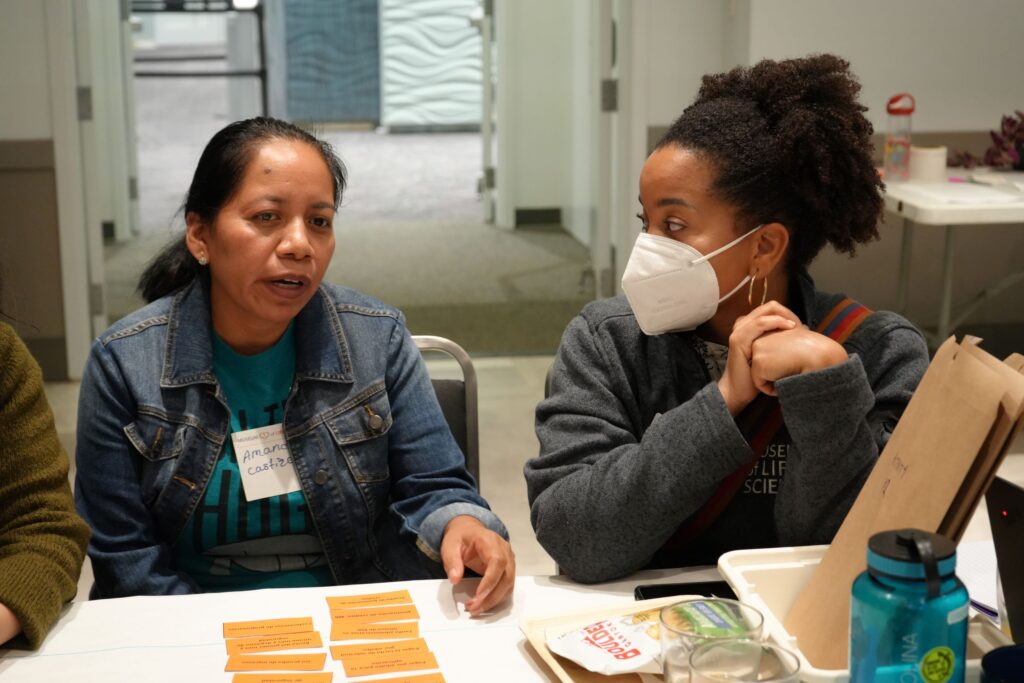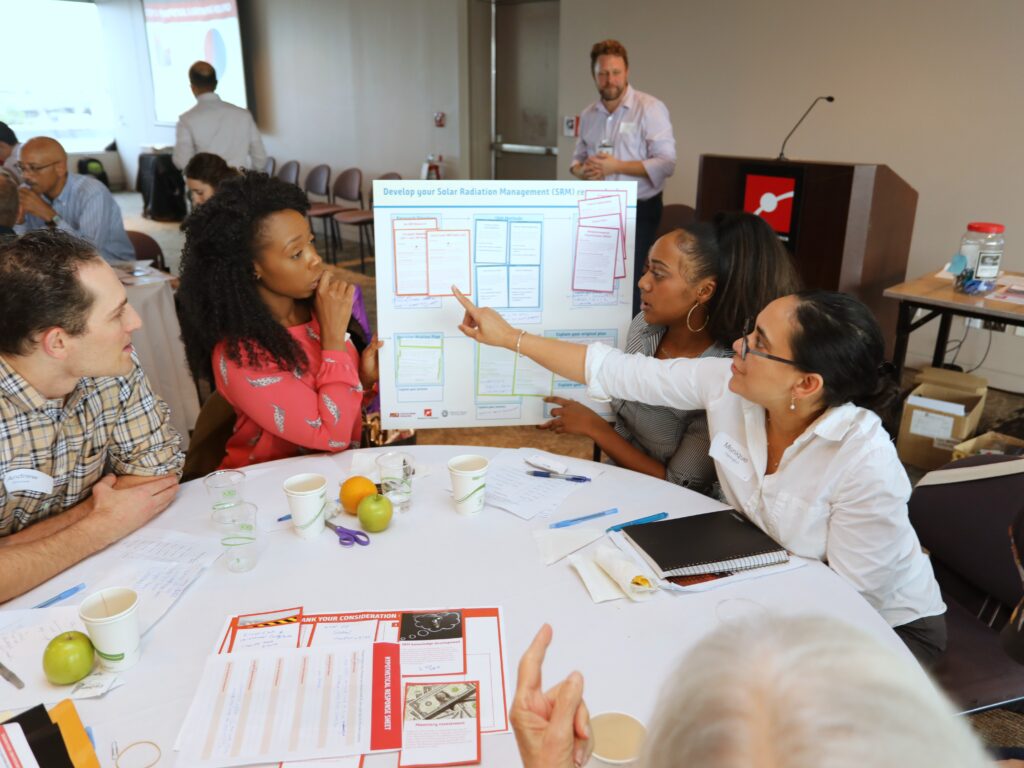
Partnering to Address Misinformation
Institute for Science & Policy, Denver Museum of Nature and Science (Colorado)
Misinformation and disinformation seeds distrust in reporting and the news while undermining science and exacerbating inequities across communities. That’s why the Denver Museum of Nature and Science partnered with the Colorado News Collaborative and Colorado State University to bring together media professionals and Black, Latino/a/x, Asian American, Pacific Islander, and Indigenous community members and allies to gain clarity on the issue, build and repair relationships, and identify opportunities for action. Over the course of two two-hour sessions, whereby participants received travel stipends, gift certificates, and childcare, small groups worked together to share their concerns, build awareness, and gain skills to facilitate similar conversations in their own communities.
Read more about this project and related efforts from the Denver Museum of Nature and Science: Navigating Misinformation
Deep Listening Provides Perspectives on Land Use
Science Museum of Minnesota (St. Paul, Minnesota)
For over a century, Boys Totem Town, a 72-acre compound used as a juvenile detention center, caused community harm – for the youth detained there, residents barred from its beautiful oak savanna, Dakota peoples displaced for its construction, and the land itself. With the compound’s recent closure, contentious history, and growing community fears that the land would see continued misuse, the Science Museum of Minnesota, in partnership with racial healing and land conservation groups, hosted an in-person community event where stakeholders shared a meal and their perspectives on the land’s future. Talking circles were used to build safe spaces for participants to share divergent perspectives and engage in the practice of deep listening. Participants were ultimately invited to weigh in on proposed solutions in multiple ways including drawing images and voting with tokens.
Read more about this project including its outcome report: Boys Totem Town Community Conversation Collective

Forming a Flood Forum for Community Resilience
Nurture Nature Center (Easton, Pennsylvania)
Three devastating floods hit Lehigh, Pennsylvania, three years in a row. As the community rebuilt, the Nurture Nature Center organized the Flood Forum Project in three of the hardest hit communities. In these forums, a couple key questions kept coming up: how did this happen, and how do we better prepare for it? To answer these questions, the Nurture Nature Center partnered with community groups, scientists, and policymakers to hold dialogue and deliberation programming that educated the community, grounded the discussion in science, and led to recommendations for decision makers.
Read the guidebook created about this programming, which has become a model for other communities hit by natural disasters: From Risk to Resiliency
Organizing Community-led Action on Divisive Issues
Everyday Democracy (United States)
From bullying to racial injustice, Everyday Democracy has utilized dialogue and deliberation programming to address some of our country’s most difficult issues. Through a process they call Dialogue to Change, they focus on building trust and learning about complex issues facing communities. In many cases, Everyday Democracy partners with groups already organizing in their community and provides experience and support in moving those communities through difficult conversations. That’s why their model starts with organizing the community and then proceeds to facilitating dialogue, moving to action, and coaching on implementation and sustainability, all while focusing on racial equity.
Read more about Everyday Democracy’s ‘Dialogue to Change’ approach, which they have used to begin conversations about sensitive topics in the wake of historic and divisive moments: Everyday Democracy

A Multi-interest Approach to Affordable Housing
Museum of Life and Science (Durham, North Carolina)
Finding affordable housing is difficult for many Americans, but the crisis shows up differently across cities. To investigate how to alleviate this crisis in Durham, North Carolina, museum staff teamed up with local affordable housing groups, families experiencing houselessness, and policymakers. With this group of stakeholders, the practitioners ensured that the programming tackled questions relevant to families, but still within the scope of local governance (for example, rent control is a state-level issue in North Carolina, so localities have no power over that issue). Through role-playing activities, challenging assumptions, and facilitated discussions, participants—most of whom were strangers—came to consensus around questions such as: What should be allowed on a lease? Is it better to build new housing, or renovate old housing? What percentage of your paycheck is reasonable to expect to spend on your monthly rent?
Read more about the collaboration in the Journal of Museum Education: Science Together: Co-Creating Meaningful Informal Science Education Experiences Between a Science Center and a Temporary Homeless Shelter
Using Art to Unearth Community Priorities
Natural History Museum of Los Angeles County (California)
Like most major U.S. metropolitan areas, in LA millions of people – especially people of color and those experiencing poverty — lack access to green spaces that meet their needs. In partnership with Nature For All, the Natural History Museum of Los Angeles County brought a cohort of Angelinos from communities lacking access to parks together with environmental justice advocates, artists, and natural science researchers for an event exploring how to increase green space accessibility. Through structured conversation and art creation at a centrally located nature center, the group engaged in one-on-one and small group conversations to unearth community priorities around human and environmental health. All participants were offered food, a stipend, and childcare and organizers ensured the event was accessible to those experiencing visual challenges.
Youth Shaping Local Climate Policy
Oregon Museum of Science and Industry (Portland)
Youth are one of the hardest groups to engage in public policy, even as many policy decisions affect them the most. That’s why Dialogue and Deliberation practitioners from the Oregon Museum of Science and Industry partnered with a youth-focused organization, Momentum Alliance, and Portland Metro to empower youth to develop policy-oriented workshops. Youth led the process from the bottom-up: they voted to focus on education and climate change, crafted a guiding question focused on corporate sustainability, facilitated conversations with experts and policymakers, and decided to focus on sharing climate-focused stories with policymakers. The programming concluded with three virtual storytelling workshops, one for youth, the general public, and educators.

Engaging Global Stakeholders on Driverless Car Technology
Expert and Citizen Assessment of Science and Technology (ECAST) Participatory Technology Assessment (Global)
Driverless cars have zoomed from science fiction to reality, and with them come new rules of the road. Using their participatory technology assessment framework, ECAST engaged hundreds of city dwellers to discuss the promises and threats of driverless cars. They started by bringing together stakeholders from across the globe, including philanthropy, industry, and government. After conducting workshops with experts to design the forum, they then launched day-long forums in major cities in North America, Europe, and Asia that involved hundreds of participants. At the end of the programming, ECAST collected qualitative and quantitative data from participants to inform policymakers on the community’s needs for regulating driverless vehicles.
Read more about how ECAST connects hundreds of participants with experts and policymakers through programs like the Automated Mobility Futures Program: ECAST participatory technology assessment modelFinding Hidden Common Ground on Health Care
National Issues Forums (United States)
For many Americans, the high cost of health care puts their finances, futures, and quality of life at risk. The National Issues Forums’ guide on this topic provides a framework for bringing people together to deliberate on potential paths forward. Should the U.S. healthcare system cover more people, cut costs, or center quality of care? These are the perspectives the guide suggests exploring through a deliberative forum while encouraging participants to listen respectfully, identify and center their values, and find hidden common ground. By approaching divisive topics in this way, communities can move toward collective decision-making to catalyze tangible action.
Read the National Issues Forums’ guide on health care and other topics: NIFI Issue Guides